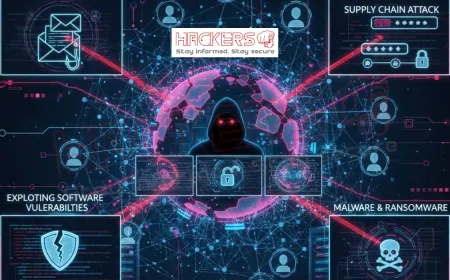How B.Tech vs B.Sc in Cybersecurity Differ in Pune | Which One to Pick?
Imagine stepping into the world of digital guardians, where you protect information from hackers and cyber threats. Cybersecurity is one of the hottest fields today, with jobs growing faster than ever. In Pune, a hub for IT and education in India, students often face a big choice: go for a B.Tech or a B.Sc in Cybersecurity. Both degrees open doors, but they differ in focus, depth, and career paths. If you're a student or parent confused about this, you're not alone. This blog breaks it down simply, helping you decide based on your goals. We'll explore curricula, colleges, costs, and more, all tailored to Pune's scene. By the end, you'll have clarity on which path suits you best.

Table of Contents
- Overview of Cybersecurity Degrees
- What is B.Tech in Cybersecurity?
- What is B.Sc in Cybersecurity?
- Key Differences Between B.Tech and B.Sc
- Cybersecurity Education in Pune
- Career Prospects After Graduation
- Factors to Consider When Choosing
- Conclusion
- Frequently Asked Questions
Overview of Cybersecurity Degrees
Cybersecurity involves safeguarding computers, networks, and data from attacks. With rising cyber crimes, experts are in demand. In India, degrees like B.Tech and B.Sc cater to this field. B.Tech is engineering-focused, while B.Sc is science-oriented. Pune, known as the Oxford of the East, offers quality programs in both. According to recent reports, India's cybersecurity market will grow to $35 billion by 2025, creating lakhs of jobs. Choosing the right degree sets your foundation.
Both degrees teach basics like encryption, ethical hacking, and risk management. But B.Tech dives deeper into tech building, and B.Sc emphasizes theory and analysis. Entry requires 10+2 with science, often physics, chemistry, math. Exams like JEE for B.Tech or merit for B.Sc apply.
What is B.Tech in Cybersecurity?
B.Tech in Cybersecurity is a four-year engineering degree. It blends computer science with security engineering. You learn to design secure systems from scratch.
Core subjects include network security, cryptography (coding to protect data), programming in Python or Java, and software engineering. Electives cover AI in security or blockchain. Hands-on labs and projects are key, like building firewalls or simulating attacks.
In Pune, colleges like VIT or Symbiosis offer it with modern labs. Duration: 4 years. Fees: Around 2-5 lakhs per year. Placements: High, with starting salaries of 6-12 LPA.
Pros: Practical skills, better job readiness. Cons: Tougher exams, longer duration.
What is B.Sc in Cybersecurity?
B.Sc in Cybersecurity is a three-year science degree. It focuses on scientific principles behind security, like data analysis and forensics.
Subjects include basics of IT security, cyber laws, mathematics for cryptography, and digital forensics (investigating cyber crimes). Less coding, more theory. Projects involve analyzing threats or ethical hacking basics.
Pune universities like Fergusson College or SPPU affiliates provide it. Duration: 3 years. Fees: 50,000-2 lakhs per year. Placements: Decent, 4-8 LPA starts.
Pros: Shorter, affordable, flexible for further studies. Cons: Less depth in engineering, may need certifications for jobs.
Key Differences Between B.Tech and B.Sc
Here's a clear comparison:
| Aspect | B.Tech in Cybersecurity | B.Sc in Cybersecurity |
|---|---|---|
| Duration | 4 years | 3 years |
| Focus | Engineering and practical system design | Scientific theory and analysis |
| Curriculum Depth | Advanced programming, AI integration, hardware security | Basics of security, forensics, laws |
| Entry Requirements | JEE or state exams, higher cutoffs | Merit-based, lower barriers |
| Cost in Pune | 8-20 lakhs total | 1.5-6 lakhs total |
| Job Roles | Security engineer, architect | Analyst, forensic expert |
| Further Studies | M.Tech, direct PhD | M.Sc, then specialize |
B.Tech suits tech builders, B.Sc fits thinkers who love research.
Cybersecurity Education in Pune
Pune hosts top institutes. For B.Tech: COEP offers computer engineering with security electives, MIT-WPU has dedicated programs. Symbiosis and DY Patil are popular.
For B.Sc: Savitribai Phule Pune University (SPPU) affiliates colleges like BMCC. Private ones like Flame University add forensics.
City's IT parks like Hinjewadi provide internships. Events like Nullcon conference help networking. Government initiatives like Skill India boost training.
Choose based on rankings: COEP for prestige, private for flexibility.
Career Prospects After Graduation
Cybersecurity jobs boom in Pune, home to Infosys, TCS. B.Tech grads get roles like penetration tester (ethical hacker), earning 10+ LPA mid-career.
B.Sc grads start as security analysts, compliance officers. Certifications like CEH or CISSP add value.
Global demand: Roles in banking, government. Women in cyber grow via schemes. Freelancing possible post-experience.
Stats: 3.5 million jobs shortfall worldwide by 2025.
Factors to Consider When Choosing
- Interest: Love coding? B.Tech. Prefer theory? B.Sc.
- Budget: B.Sc cheaper.
- Time: Want quick entry? B.Sc.
- Goals: Industry job? B.Tech. Academia? B.Sc.
- Skills: Assess math, programming aptitude.
- Advice: Talk to alumni, visit campuses.
Both lead to success with effort.
Conclusion
In Pune, B.Tech and B.Sc in Cybersecurity offer unique paths. B.Tech provides deep tech skills for builders, while B.Sc gives broad knowledge for analysts. Pick based on your passions, finances, and career vision. Either way, cybersecurity promises a secure future. Research colleges, prepare well, and step in confidently. The digital world needs you.
Frequently Asked Questions
What is the main difference in curriculum between B.Tech and B.Sc in Cybersecurity?
B.Tech focuses on engineering aspects like system design and advanced programming, while B.Sc emphasizes theoretical foundations, laws, and basic analysis.
Which degree is better for immediate job placement in Pune?
B.Tech often leads to better immediate placements due to its practical focus and industry ties.
How much do B.Tech programs in Cybersecurity cost in Pune?
They range from 2-5 lakhs per year, totaling 8-20 lakhs.
Can I pursue M.Sc after B.Sc in Cybersecurity?
Yes, it's a direct path for specialization.
What entrance exams are needed for B.Tech in Pune?
JEE Main or MHT-CET are common.
Is B.Sc sufficient for a cybersecurity career?
Yes, with certifications like CompTIA Security+.
Which colleges in Pune offer B.Tech in Cybersecurity?
MIT-WPU, VIT Pune, and Symbiosis.
What skills are taught in B.Sc Cybersecurity?
Digital forensics, ethical hacking basics, and cyber laws.
How long is B.Tech vs B.Sc?
B.Tech is 4 years, B.Sc is 3 years.
Are internships easier with B.Tech?
Yes, due to engineering alignment with IT firms.
What is the starting salary for B.Sc grads?
Around 4-8 LPA in Pune.
Can I switch from B.Sc to tech roles?
Yes, by gaining practical skills online.
Is Pune good for cybersecurity studies?
Absolutely, with IT hubs and top colleges.
Do both degrees cover ethical hacking?
Yes, but B.Tech goes deeper.
What if I fail entrance exams for B.Tech?
Opt for B.Sc or lateral entry later.
Are scholarships available?
Yes, merit-based in both.
Which is more affordable?
B.Sc, with lower fees.
Can women excel in this field?
Yes, with growing initiatives.
What certifications complement these degrees?
CEH, CISSP, or CISM.
Final tip for choosing?
Align with your strengths and long-term goals.
What's Your Reaction?










































































